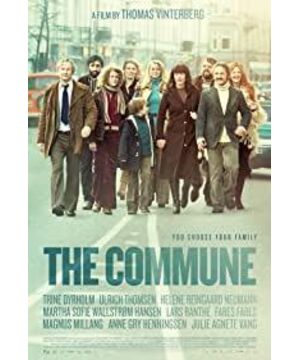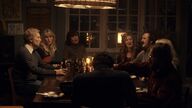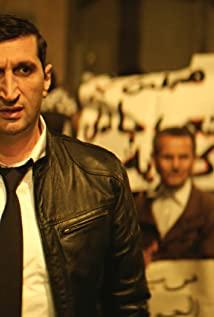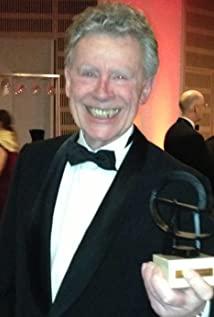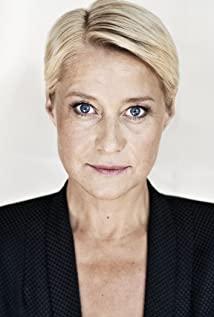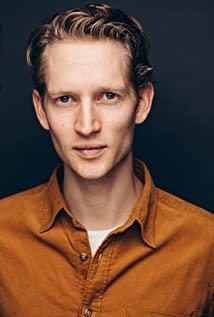Photography and Picture-Photography is the soul of film. Of course, photography is the result of collaboration with lighting, art, costumes, props, and makeup. The visual image presented to the audience is the basic of the movie. Without the image, it can’t be called a movie. Even Derek Jarman ’s "Blue" still retains the pure blue image. The light of color was cast on the screen. "commune"Most of them use portable photography. The lens is slightly shaken to create a sense of instability and persecution of the undercurrent surging under a calm surface. Of course, portable photography is also one of the director’s styles. There are also many close-ups of actors’ faces. The expression is used to portray the character's heart to narrate. The color of the picture is mostly warm and bright. For example, when the members of the commune have dinner, in addition to the lamps on their heads as the main light source, they also put a lot of candles in the middle of the table to make the candle light lower the color temperature, making the color of the picture especially the actors’ The face is warm orange-red, and the room behind them is also placed with a lighted candle or a light with a faint light, which creates a sense of space while ensuring that it will not overwhelm the guests during the day. , They make full use of daylight, sometimes bright and dazzling, creating a sense of drawing the characters in the play away from the world, and even shooting against the light in several places, which plays a role in contrasting the hearts of the characters. In terms of lighting overall, I think the director uses the existing light sources as much as possible and rarely adds artificial light sources. This is also for restoration and reality, especially when the husband Eric confessed to his wife that he had an affair in the bedroom. The scenes should be filmed entirely with the existing indoor lighting, real and depressing. The color and texture of the picture were often seen in the mid-term films of Hellas von Trier , such as "Dancer in the Dark" and "Breaking the Waves " . " And "Idiots" and Thomas Winterberg's "Family Banquet " , nostalgic of their films from that period, each has a shocking and desperate beauty.
Music-The soundtrack used in the film is neither too much nor too little, and there is no overwhelming noise under the premise of matching the content of the story. The soundtrack is used in the following scenes. The family hostess Anna and her daughter who have just moved into the new house bid farewell to the night shift and the next day. At the beginning of their beautiful day, Anna and his wife’s lover Emma went shopping and were on the bench. Emma Emma, who was resting on the glass of the bus, and Anna, who had almost collapsed, sat in the dining room in despair. Daughter Friger decided to let her mother Anna leave the commune. The little boy Willard suddenly fainted and was at the beach while they were eating. The people who gave him his ashes off, and the members of the commune left after his mother left. They have the joy of setting off happy times, the gentleness of warm moments, and the desolation under grief and despair. Every place should be said to be just right, not very exciting but no fault. The film also uses two soothing and nice English songs, both appearing in a more warm and harmonious situation. A male song appears at the beginning of the highlight moment when moving into a happy family in the new home, and at the end of the film, the commune is back on track after Anna leaves. During the dinner conversation, a female song appeared when Emma first joined the commune. Anna and Emma were in peace for a while, which also complemented the emotional portrayal of the characters in the play.
Performance-Let Winterberg ’s film not slip to mediocrity. The heroine Anna’s actor Tina Disholm contributed the most , and she won the Berlin Queen’s Trophy with this film, which is also for her outstanding acting skills. Certainly, winning the prize is well deserved. I've seen her before and temperature Te Boge cooperation "dinner" , and she and Susanna • Bill in 2011, the 83rd Oscar for best foreign film cooperation "better world" . Tina Disholm ’s acting style is a mixture of Juliet Binoche and Isabel Huppert , HuppertThe performances are gloomy, and the character creation always reveals a kind of ruined beauty in the elegance, while the style of Binoche is elegant and agile, and Disholm has both and tends to be more biased than Nosh . This time in "The Commune" , she is the soul of the whole film. Several facial close-ups in the film. She used her precise expression to dream of the prospect of establishing a beautiful commune at the beginning, and had to accept the joining of her husband and lover in the middle. The embarrassment and helplessness, to the emotional breakdown, especially the despair and loss of the public society formed by her daughter and her husband, to the ultimate calmness, the interpretation is impeccable and convincing. In addition to Tina Disholm , I also need to mention Martha Sophie Voss Tom Hansen , the actor of her daughter Friger . Her role is a bond of the commune collective in the film, and she accurately interprets it A clever 14-year-old young girl with strong opinions and early love, she finally chose to let her mother leave the commune and her sad and painful performance for her decision was very natural and contained amazing emotional explosiveness, although she did not have the appearance of conformity. But this should not hinder her development. I hope that as she grows older, her acting skills will improve and more and better works will come out.
Story-The story or plot of the film, in fact, has sporadic involvement in the front, so I will organize it systematically here. This is a simple story. A family of three moved to a 450-square-meter villa in the suburbs. Her husband Eric is a teacher who teaches architecture at the university, his wife Anna is a well-known news anchor, and there is a spooky daughter, Frederick. Because Eric was worried about the cost of the house, Anna suggested to recruit some people to live in, forming a commune model, which can share the cost of the house. On the other hand, she thinks it will make their lives more colorful. First of all They first invited their friends, with a mustache, wearing a turtleneck sweater, and a somewhat cynical Orego; there were Mona who socialized with various men, and some were carefree; there was a son Willard who had a congenital heart disease. Steve, who wears glasses, speaks and works more steadily; there is Dieter who is more calm, and Alan, who doesn’t speak Danish very well and is often forced to change jobs, crying at every turn and with a beard on his face. . After all the members were recruited, Eric surrendered the property rights of the villa and divided it into several shares so that each member had an equal ownership. Later, Eric’s student Emma had an extramarital affair with him, and Eric also truthfully told his wife Anna. Anna didn’t cry, she accepted this fact relatively calmly, and finally Eric decided to bring Emma to live with the commune. Anna also temporarily accepted her, but when she heard that her husband and Emma were in The sound of sex in the bedroom next to her was unavoidable all night, which eventually led to an emotional breakdown when she was broadcasting the news on TV. Her mood deteriorated day by day. The members of the commune had to show their hands to vote on who to go and who to stay. In the end, her daughter's choice made Anna desperate, but after her conversation with her daughter, she woke up calmly and accepted the reality. At the end of the film, Anna bid farewell to her husband, daughter, and other members of the commune, and left her home. In the following days, life returned to the peace of the past. The members of the commune were enjoying themselves in the warm sunshine outside the window, talking and laughing. Their breakfast... This is a classic story with a typical structure of "rising, inheriting, turning, and joining". The plot layout and processing are relatively smooth, the plot arrangement is not abrupt, and the emotional rendering and control are relatively restrained. Except for Eric's sudden anger three times, the design is slightly abrupt, and there are no obvious shortcomings.
Sociality-The film has a more eye-catching shell-the concept of commune, which is a form of a utopian social fantasy country or community. As early as 400 BC, the great Greek philosopher Plato was in his " The "National Chapter" mentioned the organization of the "ideal country". He described his "ideal country" as politically dividing people into ordinary people, soldiers, and defenders. Only defenders have political rights, except Defenders and soldiers, the rest must work; economically, he advocates absolute communism of property, including sharing of wives and children; for national education, music and sports are the first priority. Plato’s political and philosophical concept of "Utopia" was inherited by Thomas Moore, an Englishman in the 16th century. On the basis of it, he proposed the theory of utopian socialism and completed a great book "Utopia". From then on " The term "utopia" has become synonymous with "utopia". In Thomas Moore’s "Utopia" country, freedom, democracy and fraternity, productivity and technology are highly developed, material is extremely rich, labor is necessary but not to earn material, property is distributed according to needs, marriage is monogamous system. Of course, in addition to Thomas Moore, there are many philosophers and scholars who have studied and explored Utopia or Utopia, or Utopia, but its form is similar to Thomas Moore's, and it is rooted in it. Plato's "ideal country". The film "The Commune"It's just that the source cited a shell of "Utopia", and the story of its occurrence can be said to be put under other forms of community without any problems. Moreover, the director did not explore the breadth of the conflict between the members living in the "Utopia" and the human nature under the constraints of this social form, except for a few words from Orego's verbal sarcastic Alan who did not share the pressure of rent. And secretly burned some of his personal belongings. Basically, there was no big friction between the members, and they were in peace with each other. It can not be said that they are happy, but there are no big differences and disputes. The director's treatment made him fail to make good use of the carrier of "community", and caused some incompatibility between it and the director's expression. The director only focused on Eric’s extramarital affairs and the simple setting of taking his lover Emma to the commune and forcing his wife Anna away. It is undeniable that the director wanted to focus on primitive sex, desire, or marriage and the commune. The contradiction and irreconcilability of the form shall be analyzed vertically without expansive discussion. The 17th British philosopher Thomas Hobbes believed that in a natural state where politics does not yet exist, everyone wants to maintain personal freedom, but also wants the power to dominate others. These two desires essentially conflict with each other, and it happens. The struggle between people brings life to a sinister and cruel place. John Locke, the philosopher who was also the ancestor of the 17th century empiricism, believed that all people must always be completely driven by the desire to pursue personal happiness or pleasure. In the film, Anna exists as a strong woman in the real world. She seems satisfied and happy to have her current husband, but Eric’s empathy for Emma is out of her emotional control over him. Anna also pinned her hopes on marriage under the social contract. She cannot tolerate this form of polygamy, and his husband Eric’s desire for youthful beauty and Anna’s requirements for the marriage contract are a pair of contradictions that are difficult to reconcile. , But under the form of the commune, his behavior did not violate its rules and left him safe. But Anna, as a victim of emotions understood by traditional society, felt that her self-interest and overall interests were irreconcilable, she did not have the foresight advocated by liberalism, and allowed her self-interest to be adjusted so as to reach agreement with long-term interests. . So her self-defeating behavior deviated from the purpose of her harmonious commune, which led to her being excluded and expelled in the end. As a human representative who is not deeply involved in the world, her daughter is the easiest to adapt to any political structure model, of course, including the commune, so she cruelly let her mother Anna leave based on collective interests, she is bound to become the core of this political form Power, champion, defender, or martyr. And other
View more about The Commune reviews


